“Everyone should have a friend,” Mihaan Dhall (20) insists. For someone who has always been at the centre of a social circle, Mihaan is primed to believe that friendship is an antidote to life’s curveballs. He recounts feeling a nervous pang a few years ago at the thought of his group going off to college and him being left behind.
Mihaan’s fears were not in isolation.
Many neurodivergent individuals — Mihaan has Down Syndrome — grapple with the same dilemma. There is an apprehension associated with stepping out of one’s comfort zone and breaking the ice while venturing to make new friends. It happens to the best of us. But, as Mihaan reminisces those days, he recounts them leading him to his now best friend Vir Kapoor.
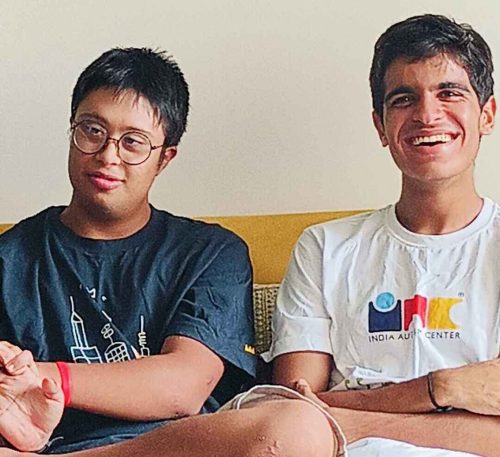
The two get along like a house on fire, and, as I chat with them over a Zoom call, I have a front-row seat to one of the most beautiful banters I have ever witnessed. Mihaan’s Down Syndrome and Vir’s autism contribute to their contrastingly different personalities. But, within the ambiguities, the gaps and the silences, there is a deep regard for the other.
It was this awe at how friendship could transcend boundaries of disability, that compelled Mumbai-based Moneisha and Gopika, the duo’s mothers, to develop ‘Buddy Up’ — a friendship app for people with disabilities (PWD) and their caregivers — designed to be a safe, accessible and inclusive platform for them to make connections.
One size doesn’t fit all: Exploring neurodivergent friendships
For the longest time, Gopika was stressed that her son Vir (20) would never find a friend. Recalling the absurdity of play dates that were advocated at the time for children with autism, Gopika says, there wasn’t any space for candour.
“The play date was 40 minutes long and structured in a way that the children would greet each other during the first five minutes, then play a game followed by another game and then have a snack.” Each time, it was a new acquaintance.
Was 40 minutes enough for a friendship to be forged?
Clearly not, as Gopika discovered.
On most of these play dates, she would end up playing with the child, while Vir wandered off. “It was stressful for him,” she explains. “He used to be very reticent and it was hard for him to open up to a new child every time.” So, today, when she watches her son bond with Mihaan without any intervention, relief colours her face.
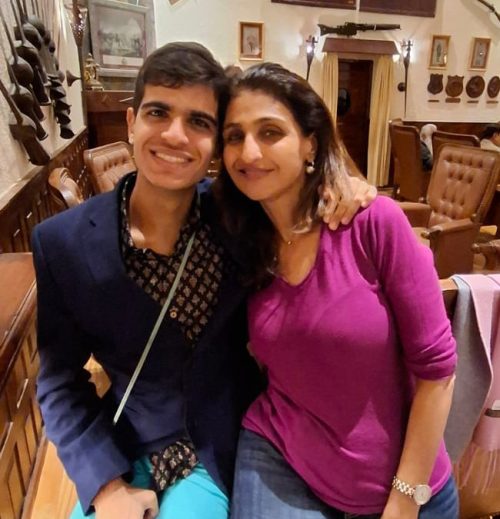
“And this is exactly what we wish for every disabled person to find — a friendship where they can be themselves,” Gopika shares. And Moneisha agrees. The app, they explain, is designed to cater to the needs of those who are inclined to more eclectic patterns of friendship, those who veer away from contemporary definitions.
Take Vir and Mihaan for instance. They enjoy starkly different hobbies. While Vir loves a good puzzle and spends his time cycling, swimming, running and baking, Mihaan is a music aficionado. I wonder where they find common ground.
As it turns out, humour is the adhesive in this friendship! But their symbiotic relationship isn’t limited to cackling at each other’s jokes. It also extends to appreciating the other’s talents.
“Vir makes aircraft and windmill models with LEGO blocks and makes them move by attaching a machine to them. It’s so cool!” Mihaan is in awe and makes it a point to express it every chance he gets. Vir appreciates this. Sharing his uncomfortable history of making new friends, he says, “It’s easier when someone comes up to me and says they want to be my friend instead of the other way around.”
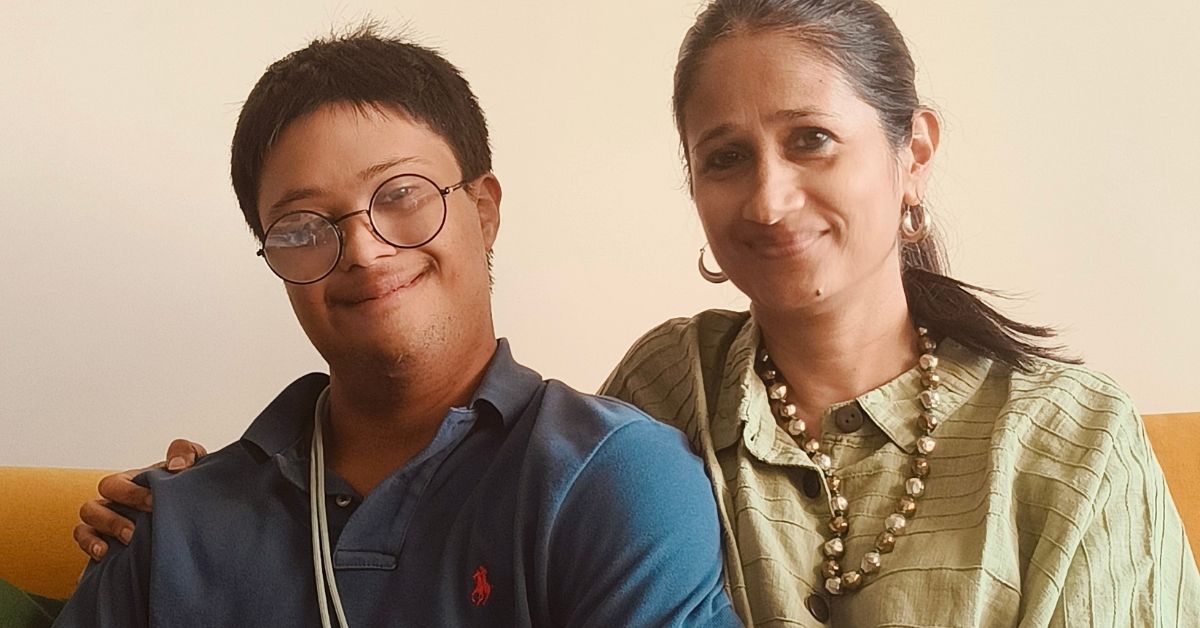
Mihaan, on the other hand, has a more perkier outlook on socialising. One of his closest friends has a speech impairment and is unable to articulate. So, while the ever-chatty Mihaan talks, she types out her responses.
Disability shouldn’t be a bar to making friends. And this, Moneisha points out, is the premise with which Buddy Up has been created.
Buddy Up – Find a friend
Gazing around the close-knit circle of friends that their sons enjoy today, the mothers admire the connections. While every kind of friendship warrants a deep understanding of the other’s strengths and weaknesses, this becomes more essential in neurodivergent friendships.
“It’s amazing how each of them in the group brings to the table their own challenges,” says Gopika, adding that the adolescents pick up on these subtleties.
“They are non-judgemental and meet each other’s needs. Essentially, everyone finds that person they can spend time with. And we hope the app opens up the possibility of this happening for more people,” she adds.
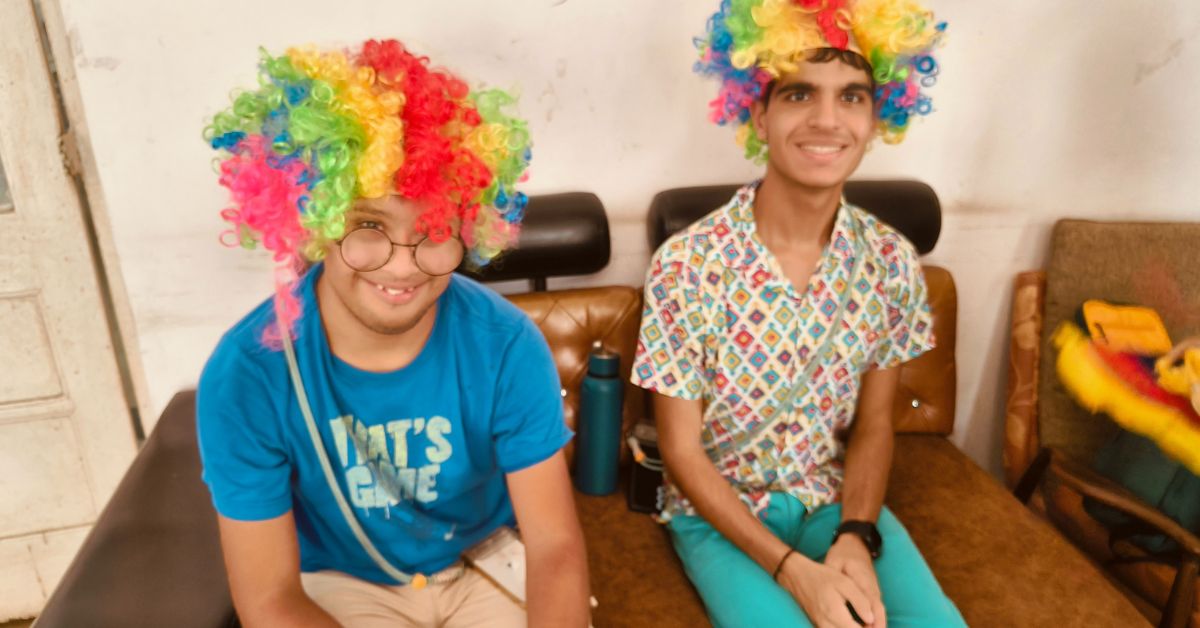
The app, launched earlier this year, is amassing a lot of love from the community. “Anyone above 18 years of age can create an account, while caregiver accounts can be created for children below 18 years of age. For those who are over 18 but have a vulnerability that affects their decision-making, we encourage caregivers to monitor the accounts,” Gopika explains.
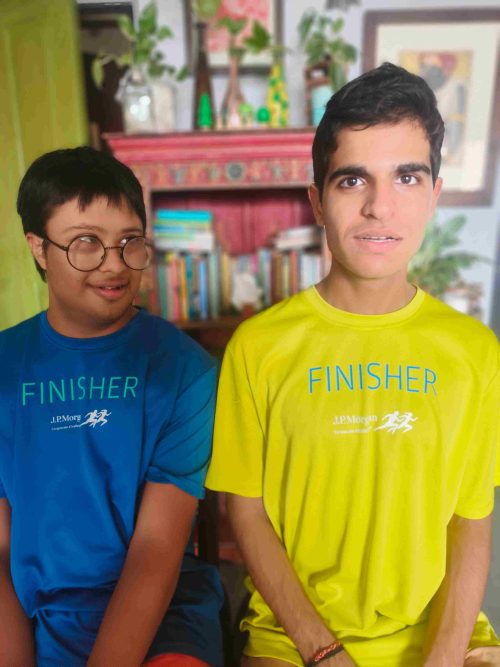
“The app is available in Hindi and English and allows users to search for friends based on age, location, interests, disability, and gender. It can help find friends for people with all disabilities and of all ages,” she adds.
But stepping away from the demographics, Moneisha says, at the heart of this project is the idea of finding a friend. “For the disability community, when kids are young, the focus is on therapy and school. When they are older, it becomes about jobs. No one focuses on friendship. But we believe that friendship is as important as any of these other things. We saw how powerful a connection like this has been for our boys.”
##QA-TP1##Mihaan’s words ring true, “Everyone should have a friend.” On second thoughts, he adds, “A friend like Vir.”
Edited by Pranita Bhat; Pictures source: Moneisha Gandhi

No comments:
Post a Comment